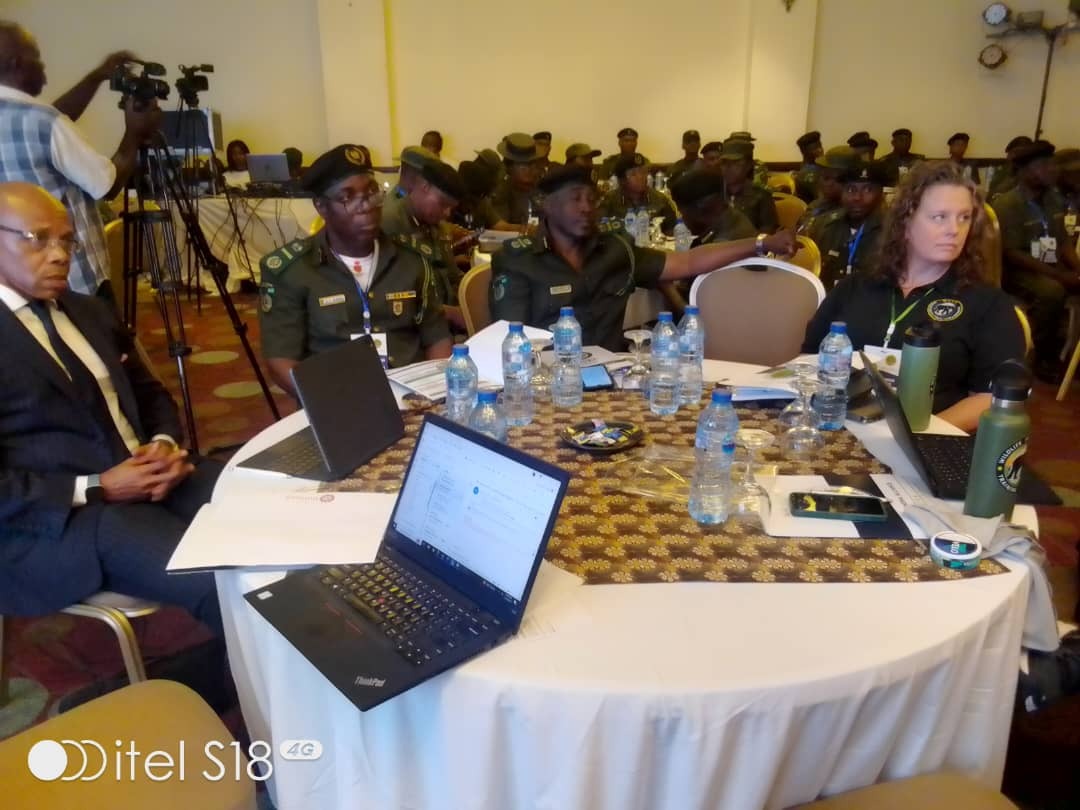
posted November 19, 2023
There has been a call by stakeholders in wildlife conservation for the deployment of cutting-edge technology, such as drones and GIS mapping, in wildlife protection in Nigeria and this is a reflection of a growing recognition of the need to leverage modern techniques to combat illegal wildlife activities.
This initiative was highlighted during a two-day workshop on the use of modern techniques in combating wildlife crime, organized by the National Park Service in collaboration with the Attorney General Alliance-Africa Programme (AGA-AFRICA).
The Stakeholders are pushing for the adoption of advanced technologies like drones and GIS mapping to enhance the effectiveness of wildlife protection efforts. Drones can be instrumental in monitoring large and remote areas, providing real-time data on wildlife activities and detecting illegal activities such as poaching and habitat destruction. GIS mapping, on the other hand, can aid in spatial analysis, helping authorities to understand and respond to the geographical patterns of wildlife crime.
Additionally, the stakeholders emphasize the importance of establishing an effective network for wildlife protection and providing comprehensive training for personnel in the wildlife sector. A well-connected network can facilitate the sharing of information and coordination among different agencies involved in wildlife protection, leading to a more cohesive and efficient response to illegal activities.
In the welcome address at the workshop, spearheaded by AGA-Africa, its International Advisor, Mr. John Edozie, acknowledges the alarming surge in illegal wildlife trade, attributing it to advancements in technology. This recognition underscores the need for a proactive approach to address the challenges posed by modern tools and methods employed by those engaging in illegal wildlife activities.
“Disturbingly, data from the Environmental Investigation Agency (EIA) website highlights Nigeria’s involvement in trafficking significant quantities of ivory and pangolin scales. Specifically, more than 49,000 kg of ivory and 161,000 of pangolin scales, which has resulted in the death of 7,400 elephants and hundreds of thousands of pangolins.
“Such illicit activities not only pose a severe threat to our planet’s biodiversity, with pangolin populations declining by up to 80% in certain parts of Africa, but also erode the foundations of the rule of law, foster corruption, and fund criminal enterprises”, he said.
Adding that, “To address this global crisis effectively, we must equip ourselves with the most advanced tools and strategic approaches available. This entails embracing cutting-edge technology such as drones, GIS mapping, and DNA analysis to confront the threats posed by poaching and the illegal wildlife trade head-on”.
Edozie, however, pointed out that success in combating wildlife crimes does not solely rely on technology, but hinges on networks that facilitate regional and international collaboration, including the sharing of intelligence.
He pointed out that, “Just as criminals operate without regard for borders, so must we — to make it increasingly difficult for traffickers to find safe havens”.
He also stated that training programs, such as the instant one play a crucial role in empowering those on the front lines.
“We are thus glad, as the AGA-Africa Programme, to lend our support to this endeavour through the facilitation of this workshop, ensuring that we can fight wildlife crimes much more aggressively and effectively.
“As a non-profit organization, the AGA-Africa Programme is dedicated to promoting the rule of law, strengthening legal systems, and fostering collaboration among criminal justice actors across the African continent.
“This involves providing training programs, technical assistance, and resources to enhance legal expertise when it comes to tackling transnational crimes like cybercrime, money laundering, wildlife trafficking, and other cross-border offences in Africa. Currently, the AGA-Africa Programme is active in West, East and Southern Africa”, he added.
Also speaking, the Assistant Conservator-General, National Park Abuja, Mohammed Kabir, observed that the workshop was apt because it was coming at a time the service needed it most.
Kabir, said further that the training will enhance the capacity of park officials in combating illegal trafficking in wildlife which he puts between N7 billion and N10 billion.
Besides wildlife, Kabir raised alarm in increase in cases of illegal logging and grazing which according to him contributes to the illicit wildlife activities.
The Assistant Conservator-General, therefore called for the arrest and prosecution of all those involved in these illegal activities.
Overall, by advocating for the integration of cutting-edge technology, network enhancement, and personnel training, the stakeholders aim to strengthen the capacity of wildlife protection efforts in Nigeria and mitigate the impact of illegal activities on the country’s diverse ecosystems.

